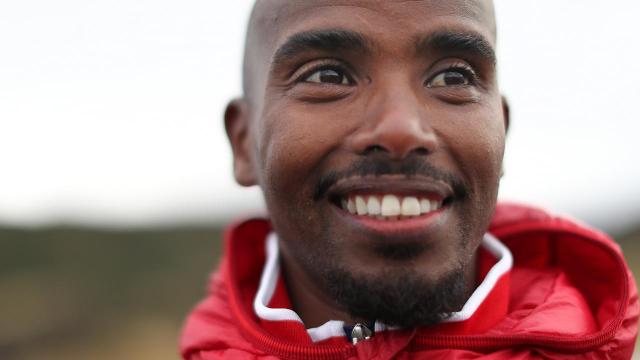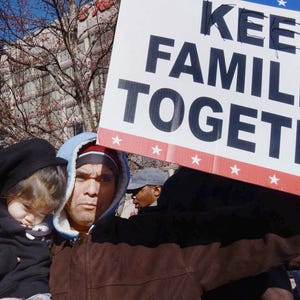Trump’s refugee ban hits Hollywood, sports, tech worlds – USA TODAY

British Olympian Mo Farah is speaking out after President Donald Trump signed a controversial immigration and refugee ban on Friday
Time
Possibly unintended consequences of President Trump’s refugee ban has ensnarled leaders in the entertainment, sports and tech worlds.
Two-time Oscar nominee Asghar Farhadi, who wrote and directed The Salesman, Iran’s entry for best foreign-language film, said Sunday he will not attend this year’s Academy Awards ceremony because of the executive order signed by Trump barring citizens of certain countries from entering the U.S.
Farhadi said the uncertainty surrounding his ability to travel to the United States was “in no way acceptable,” and he would not attend next month’s Hollywood ceremony even if an exception were made for him.
Blocking Farhadi from the Oscars is one result of the three-month ban on new travel visas for citizens from the predominantly Muslim countries of Iran, Iraq, Syria, Sudan, Libya, Yemen and Somalia. (The State Department has listed Iran, Sudan and Syria as state sponsors of terrorism.)
In sports, four-time Olympic champion Mo Farah has criticized Trump’s immigration policy, saying Sunday the temporary travel ban “seems to have made me an alien” and leaves him unsure whether he can return to his U.S. home. Farah is a British citizen who was born in Somalia.
Farah currently is training in Ethiopia. His wife, Tania, and four children are in Portland, Ore., where the Farah family has lived the past six years.
“It’s deeply troubling,” Farah, 33, said on his Facebook page, “that I will have to tell my children that Daddy might not be able to come home — to explain why the President has introduced a policy that comes from a place of ignorance and prejudice.”
The NBA has reached out to the State Department to understand how Trump’s executive order will impact player travel.
Los Angeles Lakers forward Luol Deng and Milwaukee Bucks rookie Thon Maker were born in Sudan (now South Sudan), and residents from Sudan have been banned entry into the United States for three months, according to the order.
Deng is also a British citizen, and Maker has dual citizenship in Australia and South Sudan. The Bucks played in Toronto against the Raptors on Friday, and Maker had no issue clearing customs using his Australian passport upon his return to the United States. The Bucks and Lakers do not play in Toronto the rest of the season. Maker’s younger brother, Matur, plays prep basketball in Canada and is being recruited by U.S. colleges.
There are several players from Sudan on American college and high school rosters. Center Choi Marial, who is from South Sudan and plays for Cheshire (Conn.) Academy, is one of the top prospects in the class of 2019 and has offers from Florida State, Georgetown, Iowa, St. John’s and West Virginia, according to several recruiting sites.
Kentucky freshman Wenyen Gabriel is also from South Sudan.
Former NBA player Hamed Haddadi is from Iran, which is also on the banned list.
In the tech industry, Microsoft said it’s providing legal advice and assistance to its employees affected by the executive order.
“We share the concerns about the impact of the executive order on our employees from the listed countries, all of whom have been in the United States lawfully,” the tech giant said in a statement.
According to Microsoft general counsel Brad Smith, 76 Microsoft employees are citizens with a U.S. visa from the affected countries.
“We’ve already contacted everyone in this group,” he told employees in a memo. “But there may be other employees from these countries who have U.S. green cards rather than a visa who may be affected, and there may be family members from these countries that we haven’t yet reached.”
In a mini essay on Facebook addressing Trump’s action, Uber CEO Travis Kalanick said his company would compensate any affected drivers who are stuck outside the U.S. for three months due to Trump’s action.
“While every government has their own immigration controls, allowing people from all around the world to come here and make America their home has largely been the U.S.’s policy since its founding. That means this ban will impact many innocent people,” he said.
Airbnb CEO Brian Chesky criticized the ban and offered free housing to anyone displaced by the order.
Reporting by Jayme Deerwester and Jeff Zillgitt in McLean, Va.; Jessica Guynn and Laura Mandaro in San Francisco; Kim Hjelmgaard in London








